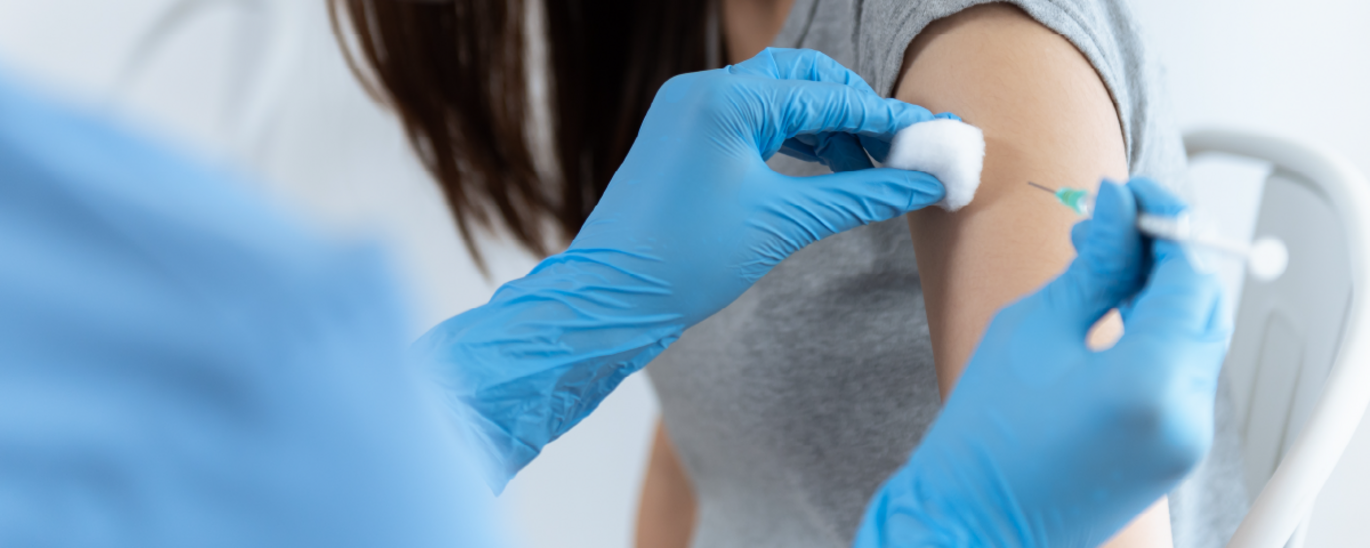COVID-19 vaccine side-effects: You get what you expect
New research shows that the side-effects each of us experience after COVID-19 vaccines are linked to our own expectations. If we are expecting side-effects, we are more likely to actually get them. According to the researchers behind the study, especially healthcare professionals should be mindful of this effect.

Do you expect to get a headache, nausea and fever after your COVID-19 vaccination? Then you probably will. The likelihood is certainly more pronounced than if you do not expect these side-effects.
This was shown in a new study just published in the high impact journal Psychotherapy and Psychosomatics.
“Many factors influence which side-effects each individual will get, for instance their age and the type of vaccine. But if we include people’s expectations in this equation, we see a significant change,” says Lene Vase, professor of psychology at Aarhus BSS, Aarhus University, and one of the researchers behind the new study.
The study is the first in the world to uncover this link.
“Naturally, we should inform people about the side-effects, but perhaps we can change the way we give this information.”
Lene Vase, professor of psychology at Aarhus BSS, Aarhus University.
“Based on this knowledge, I would say it is worth considering how to inform people of the vaccines and their side-effects. This is especially true for healthcare professionals, who might have very different ways of presenting people with the possible side-effects. But it also applies to e.g. government authorities and the media,” says Lene Vase.
Placebo’s evil twin
In other areas of healthcare, it is a well-known fact that negative treatment expectations can lead to negative health outcomes. Both mentally and physically.
This effect is called nocebo and can be explained as placebo’s evil twin. Whereas placebo could cause you to experience a positive effect from a calcium tablet because you think it contains effective medicine, nocebo means you experience negative effects from a treatment because you expect negative effects.
“If you expect to have a bad experience, you are more likely to actually have one,” says Lene Vase.
In the new study on COVID-19 vaccines, the researchers asked the participants about their expectations for side-effects prior to vaccination. After vaccination, they asked the participants which symptoms they did in fact experience.
The results show that side-effects such as pain at the injection site, headache, joint pain, fever, nausea and fatigue are particularly influenced by expectations.
Read also: Danskerne fik klar Corona-besked
Probable physical effect
The new study deals solely with the participants’ subjective experiences. For this reason, the researchers cannot say with certainty whether or not negative expectations affected the participants physically. However, Lene Vase strongly suspects this to be the case.
"From general research into nocebo effects, we know that we are dealing with neurobiological effects. For instance, our expectations might trigger the release of neurotransmitters that can increase our experience of pain, which in turn affects our health. I can easily imagine this to be the case for COVID-19 vaccines as well. We will soon learn more about these effects. We are conducting a large Danish study in which we compare people’s experiences with a detailed neurophysiological examination to obtain reliable knowledge about the physical changes,” says Lene Vase.
Read also: Empati kan forebygge COVID-19-spredning
Side-effects impact support for vaccines
According to her, the mere existence of a link between expectations and actual side-effects should give cause for action.
“Naturally, we should inform people about the side-effects, but perhaps we can change the way we give this information. Instead of stating that 5 per cent experience a certain side-effect, we can perhaps mention that 95 per cent do not. We know from other research that it works to address matters in a positive way like this,” says Lene Vase and adds:
“If we are able to reduce the discomfort of being vaccinated – without compromising factual information, of course – this will hold its own reward. And perhaps more people will feel safe having the vaccine.”
Other international studies have shown that people who opt not to have a COVID-19 vaccination are often concerned about the side-effects of the vaccine.
FACTS ABOUT THE STUDY:
- The study consisted of a two-part survey, and the result is based on data from 551 Americans who completed both parts.
- PhD student Mette Sieg from Aarhus University has contributed to the study together with Lene Vase. They have collaborated with seven other researchers from University of Toledo, University of New South Wales, University of Sydney, University of Sheffield and University of Maryland.
- You can read the scientific article here: Psychosocial Factors Predict COVID-19 Vaccine Reactogenicity
CONTACT
Lene Vase,
professor of psychology at Aarhus BSS, Aarhus University.
Email: lenevase@psy.au.dk
Phone: +45 8716 5828